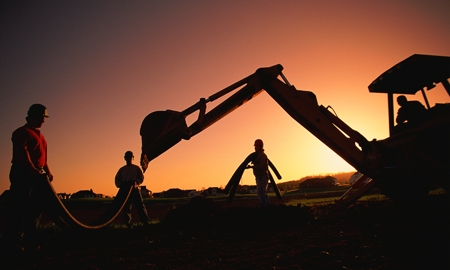
Suriname is clearly not lacking opportunities; mining resources are still plentiful, the country is rich in biodiversity, and construction developments are progressing in a sustainable manner. With its open economy, it is little wonder that Suriname has become a target for canny foreign investors.
Since coming into power in 2010, the Bouterse government has established economic policies to facilitate growth through increased revenues from exports. However, bauxite mining and refining – the backbone of Suriname’s economy for much of the last century – has been affected by some mining areas becoming depleted. Coupled with decreasing Dutch financial backing, some sectors are turning to foreign direct investment (FDI) for capital.
“We’re looking now for investors with connections to the American or Brazilian markets,” explains Stanley C. Koole, Managing Partner and Founder of ACE Consultancy. “Two things we’re looking for: infrastructural development – and even more importantly – we’re looking for business partners in agriculture, wood, and production facilities, for example.”
ACE, established in 1993 is now one of the largest consultancy firms of construction and civil engineering in Suriname, and is active in both small-scale private and large-scale multidisciplinary public projects – including a US$100 million port development project, and a US$36 million airport safety improvement plan.
| “It is very important for Suriname to continue to build a relationship with the USA.” Maurino Pansa, Managing Director of Pansa Group of Companies NV ------------------------------------------- “We have massive potential for food and meat production, because we have lots of land, and very few environmental issues.” Stanley C. Koole, Managing Partner, ACE Consultancy ------------------------------------------- “We are small, and if we’re fragmented we’re even smaller. So we have to unify our efforts.” Rolf De Jong, Prosur |
Mr. Koole feels his country offers many opportunities in other sectors. “ We have massive potential for food and meat production, because we have lots of land, and very few environmental problems; chicken farms can easily be set up here. You can train people, and have electricity and water solutions ready to go – you only need transportation. Not only for the U.S., but also for the Caribbean. Haiti has six million people who need to have food, and Jamaica has six million people who need to have food, so there’s a market.”
Figures produced by the UN Economic Commission for Latin America and the Caribbean(ECLAC) show that output in construction in Suriname expanded by 9.6% in 2010, stimulated by the government’s ongoing construction programme.
The Inter-American Development Bank (IDB) and the French Development Agency (AFD), among others, have shown interest in investing in Suriname. However, queries about sustainable management are proving to be a continuous matter of concern. “(AFD) offered Suriname $35 million for a hospital, police station, improving the fire department, but Suriname still hasn’t been able to gain even 20% of the money,” explains Mr. Koole.
Anticipating the issue of sustainable forestry concerns years ago, the Suma Lumber Company (Suma), which specializes in timber exports, became the first wood producer in Suriname to obtain the Forest Stewardship Council (FSC) certification in 2008. This internationally recognized qualification attests that international standards for sustainable forestry are being met.
Earvin Boerenveen, General Manager of Suma, explains the important competitive advantage this attributes: “The main focus was to guarantee the European market, because trends were already showing that Europe was going to only accept timber from well-managed forests.”
Fully prepared to carry on contributing to the export revenues of Suriname, Suma has two processing facilities and “five concessions which come to about 9,000 ha, of which 65,000 ha are already in the scope of FSC,” explains Mr. Boerenveen. Furthermore, he adds: “We’ve a system in place for tracking our yield, input and output. This is one of the big requirements for FSC.”
Despite a deeply rooted Dutch cultural heritage, relations with the Americas have been cultivated since Suriname’s incorporation into the Caribbean Community (Caricom) in 1995. “We’re going step by step towards the American influence,” observes Mr. Koole from ACE.
Many agree, and praise American presence for their heterogeneous contributions to Suriname. “It is very important for Suriname to continue a relationship with the USA,” says Maurino Pansa, Managing Director of Pansa Group of Companies NV. “My biggest client is an American company, Suralco. A lot of my development, management and technical skills come from American companies.”
Pansa Group of Companies NV is a holding company which offers all around construction services including industrial painting, manpower supply, insulation, scaffolding and welding. The Group incorporates Commercial Contracting Company Pansa & Sons, Pansa Machine Shop and Pansa Industries.
Increased private sector activity stimulates the local economy and has a tremendous job generating ability within the community. Additional training and education programs provide further social development.
Like pieces of a puzzle, private and public entities in Suriname are coming together to develop the country’s infrastructure, working towards a common objective. “We are small, and if we’re fragmented we’re even smaller. So we have to unify our efforts,” explains Rolf de Jong of Prosur, one of Suriname’s top civil consulting firms.
Founded in 1977, Prosur recently broadened its lines of activity to include an architectural and transport-planning unit. It has worked with private companies such as BHP Billiton, and now mainly collaborates with the government in projects such as the development of east-west road connections in the interior of the country, major roadworks from Apoera to South Drain, and the Carolina Bridge.
“We have a lot of possibilities in Suriname, but we have to watch our own development in growth and go step by step. We have to take the right steps in the right time, although sometimes you’ll have to jump, that’s no problem. Now in the government there is a better sense of what we can reach within two to four years,” says Mr. de Jong.
0 COMMENTS